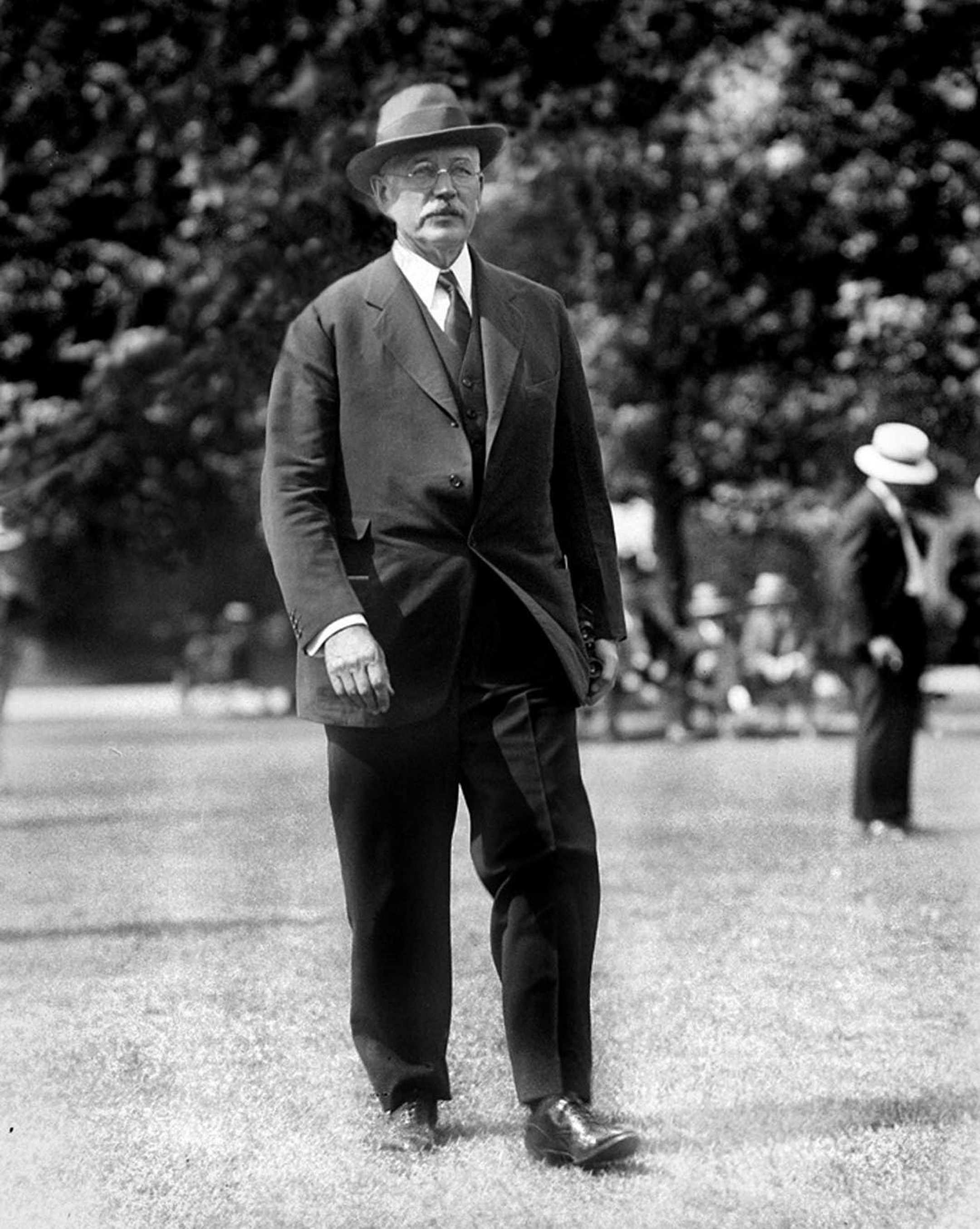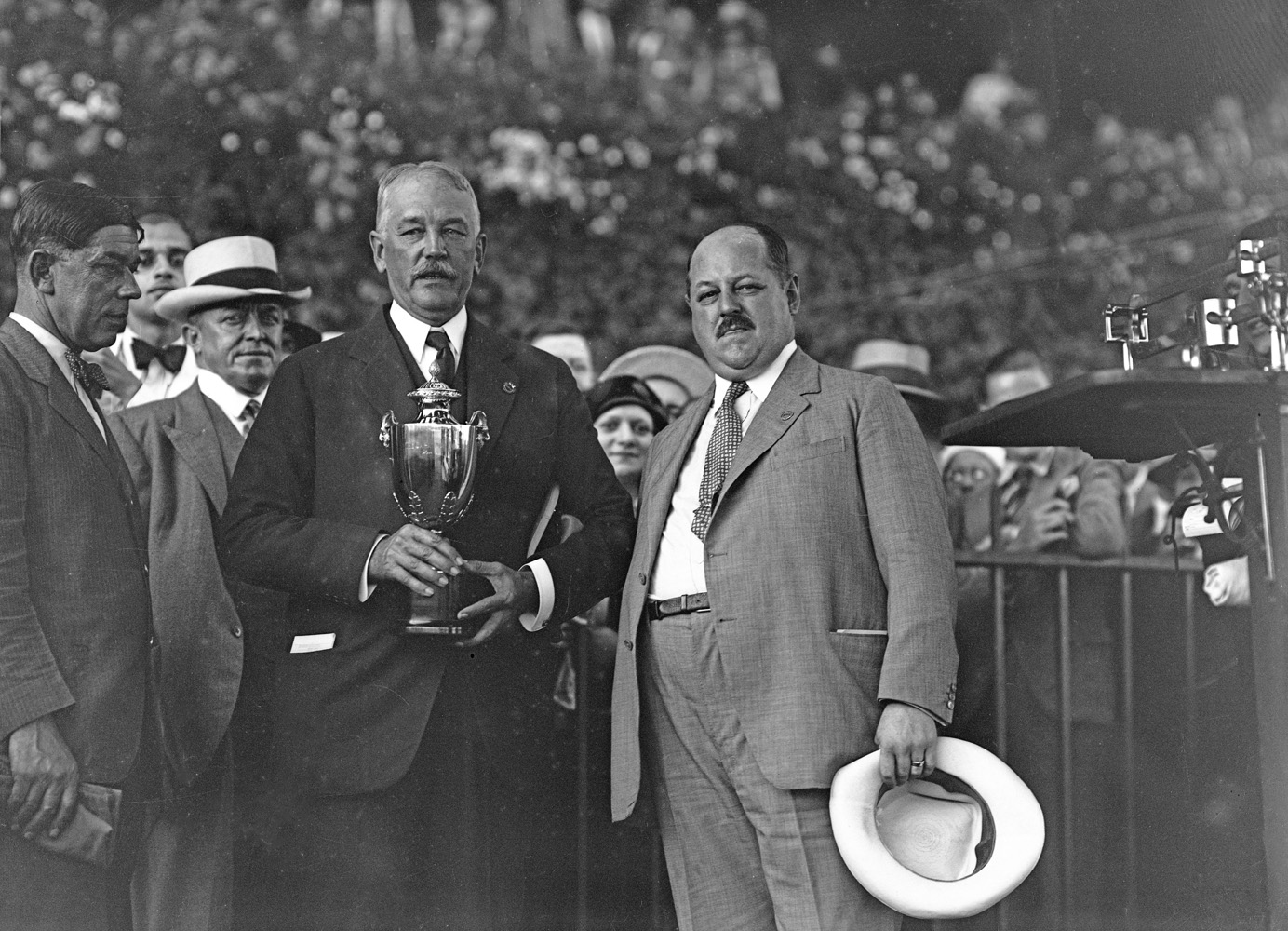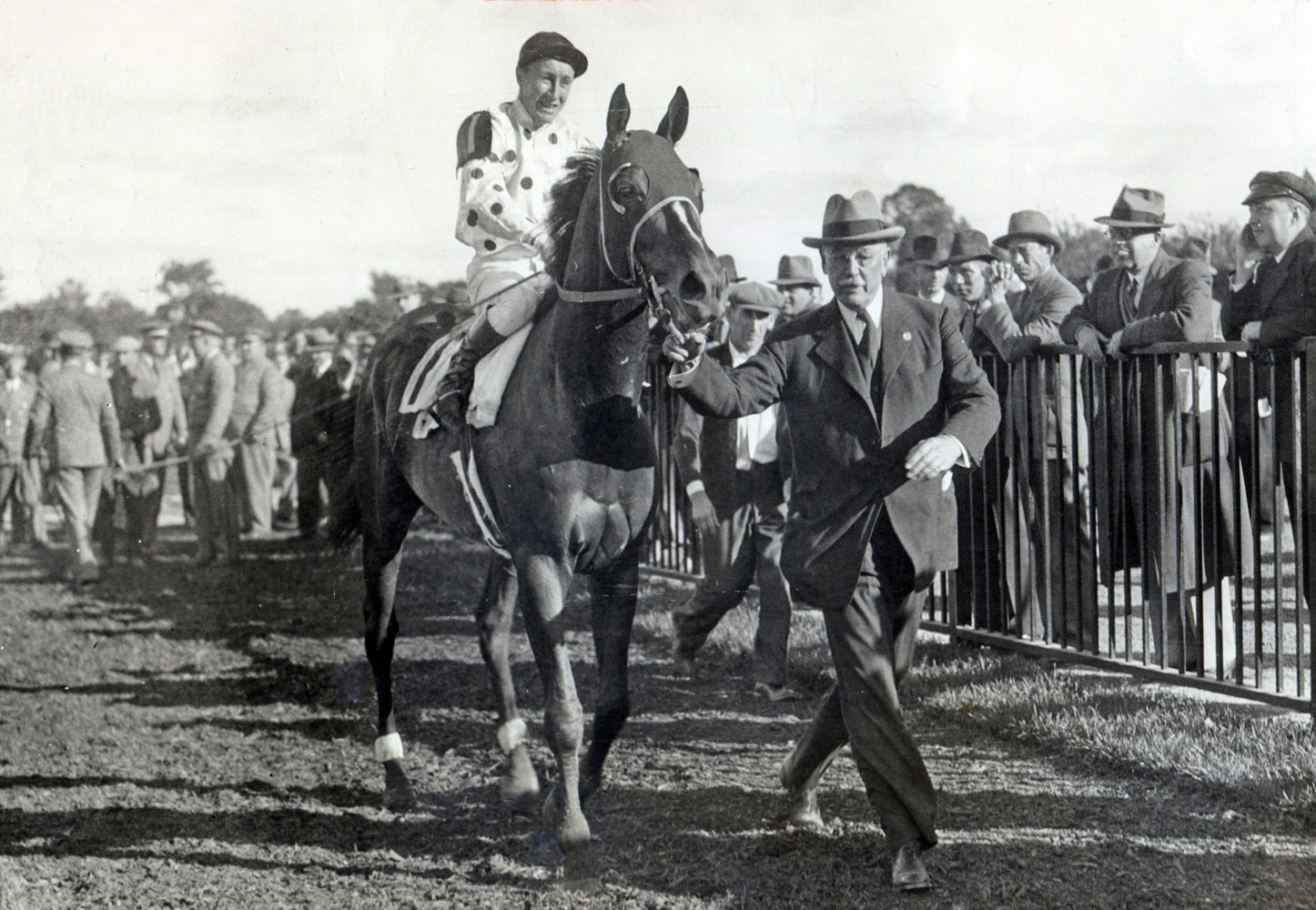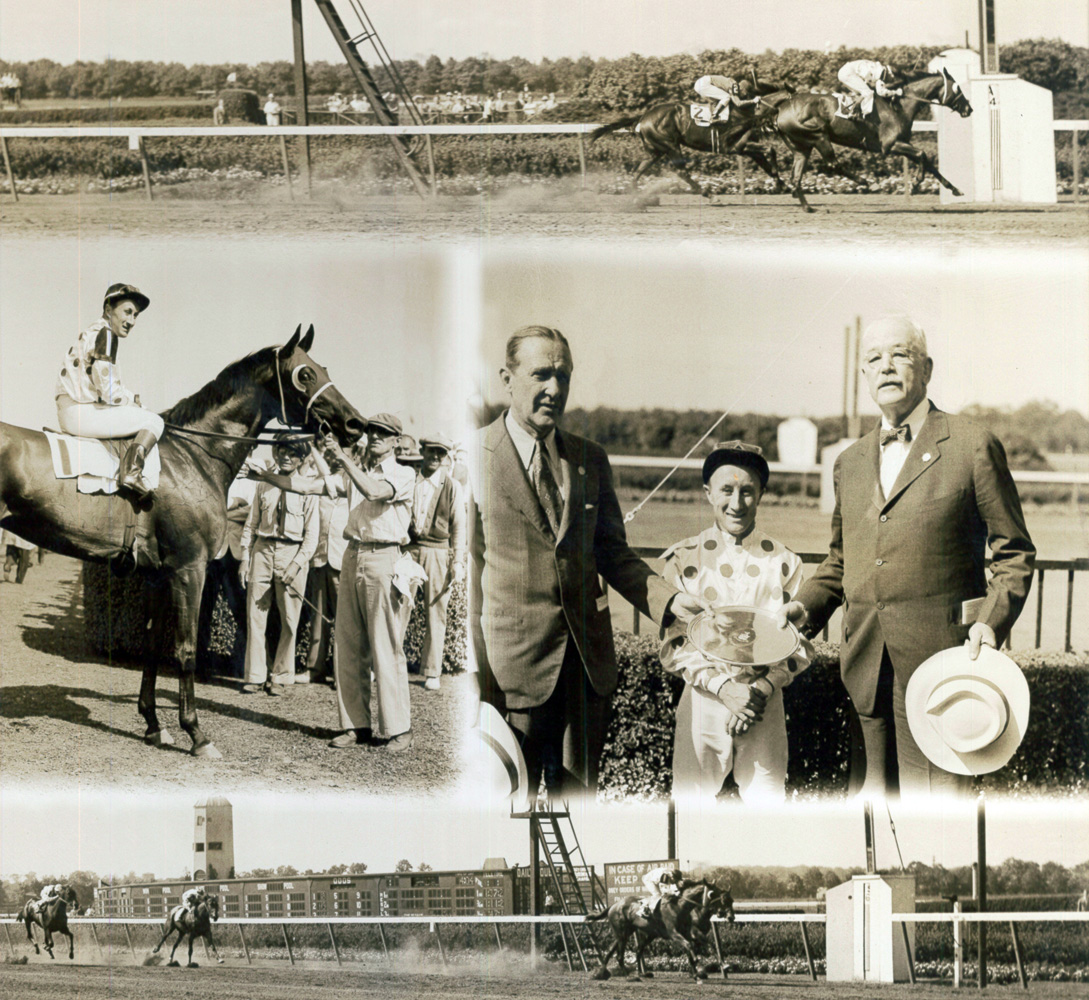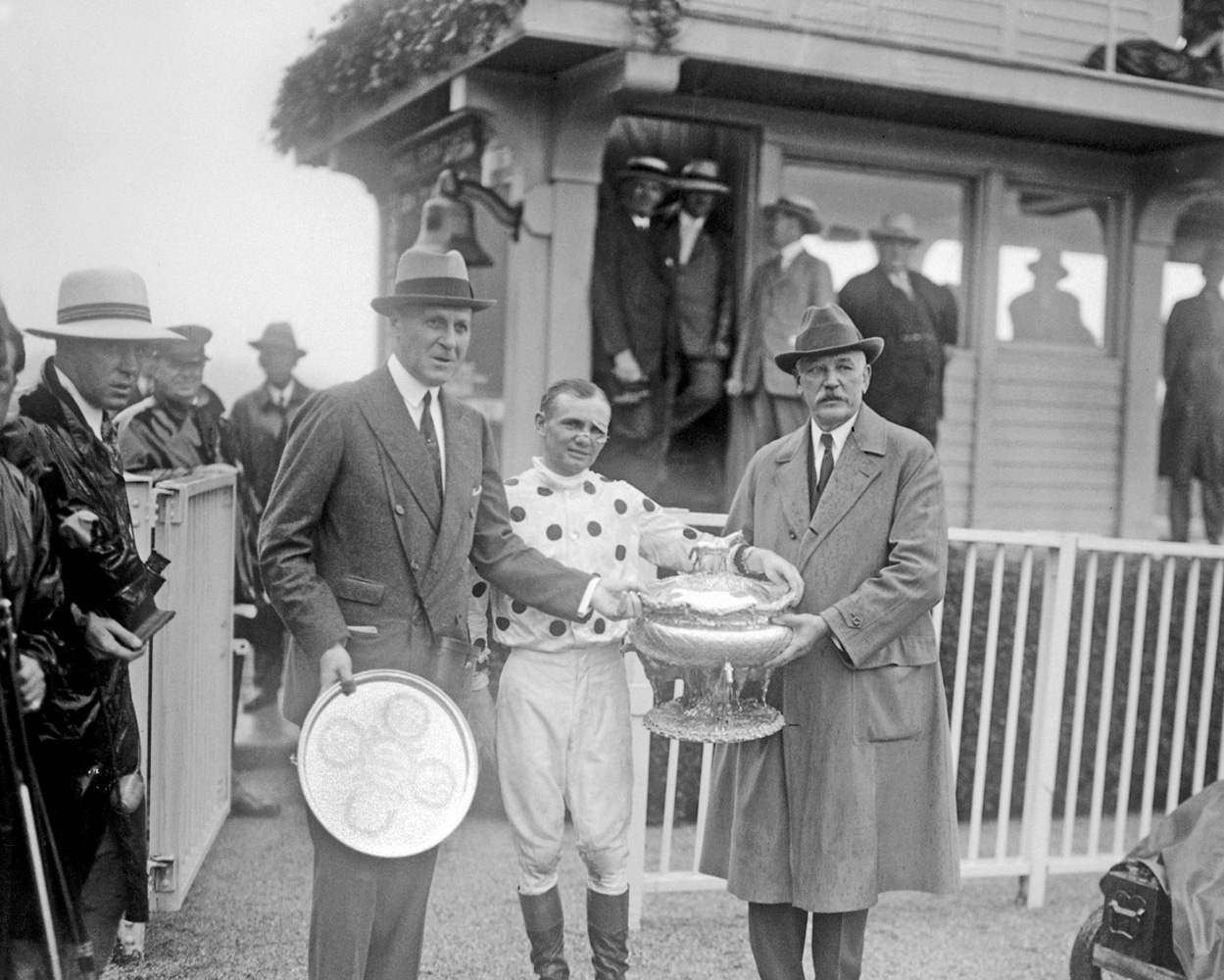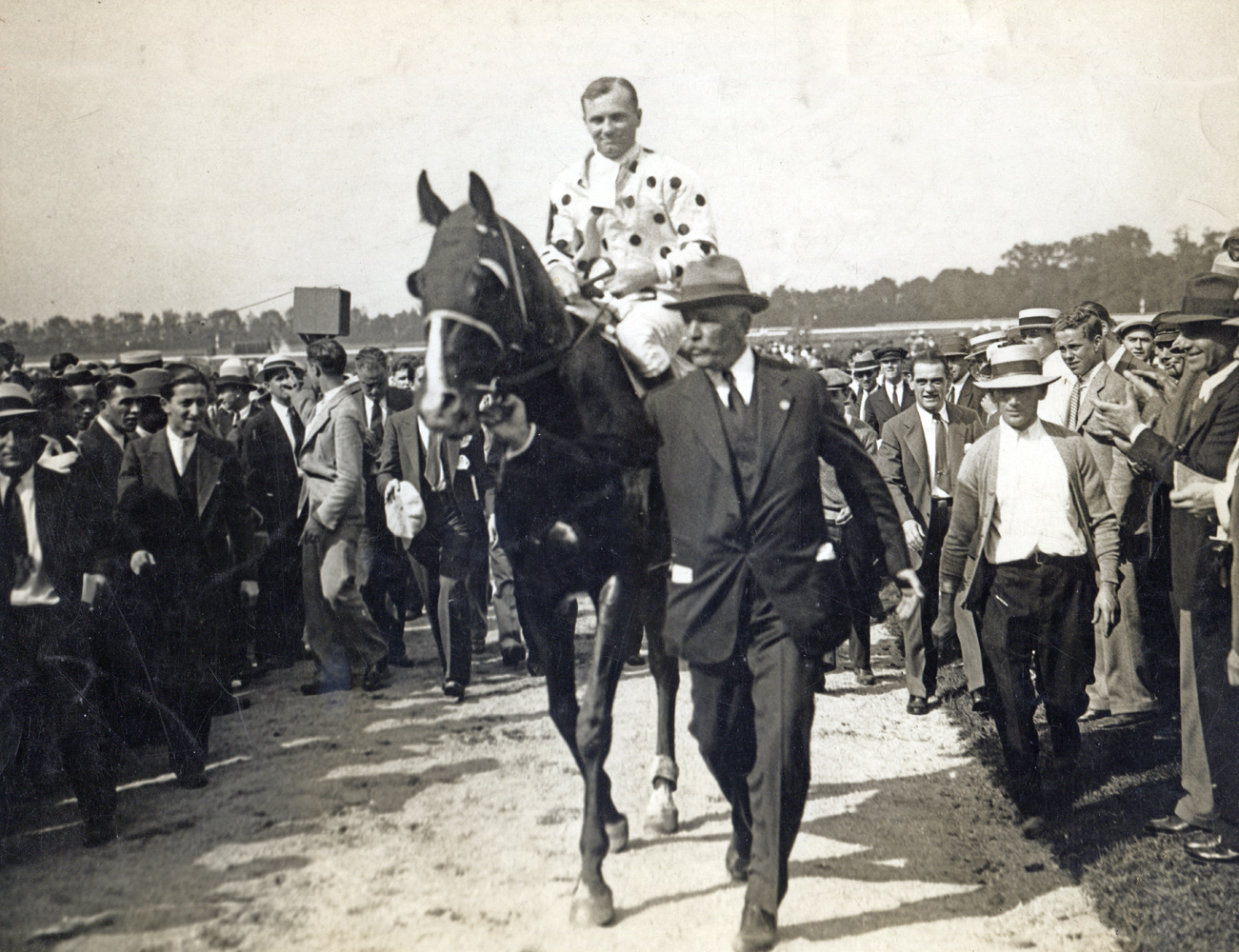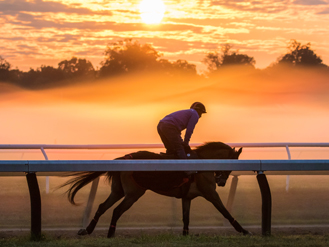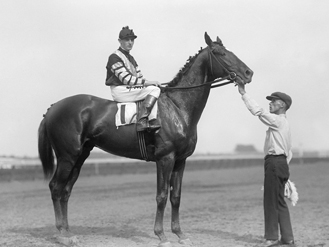William Woodward, Sr.
The breeder and owner of Triple Crown winners Gallant Fox and Omaha and a longtime chairman of The Jockey Club, William Woodward, Sr. was one of the most significant figures in American racing during the 20th century.
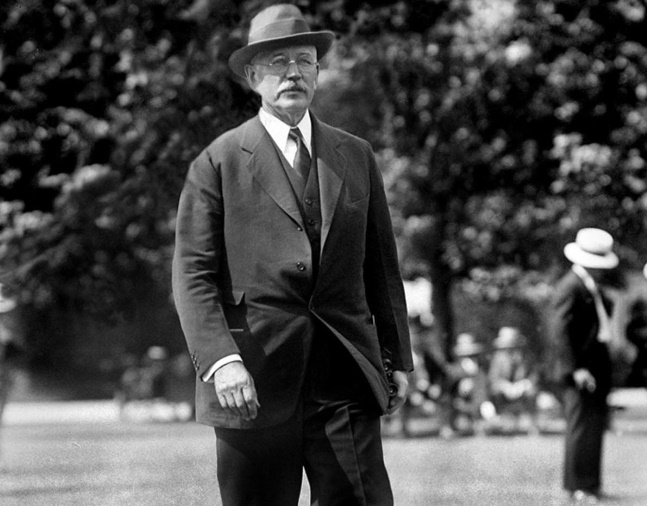
2016
April 7, 1876, New York City, New York
Sept. 26, 1953, New York City, New York
Biography
The breeder and owner of Triple Crown winners Gallant Fox and Omaha and a longtime chairman of The Jockey Club, William Woodward, Sr. was one of the most significant figures in American racing during the 20th century.
Born in New York City in 1876 into a family whose considerable wealth dated from equipping the Confederate government with textile products, Woodward’s father added to the family fortune by founding the New York Cotton Exchange. Woodward became interested in racing during his youth, as he attended the Belmont Stakes with his father for the first time in 1888.
Even though he graduated from Harvard Law School and was admitted to the bar in 1901, Woodward decided not to pursue a career as an attorney. Instead, he opted to travel abroad, becoming the secretary to Joseph Choate, the United States Ambassador to England.
Returning to America in 1903, Woodward began working in the banking industry and met his future wife, Elsie Ogden Cryder, in Saratoga Springs, New York The couple was married the following year and eventually had a son and four daughters. Woodward’s financial career led him to become president of Hanover National Bank in 1910, when his uncle, James T. Woodward, died. Along with receiving controlling interest in the bank, Woodward inherited the historic Belair Mansion and Stud in Maryland from his uncle. So began his formal pathway into thoroughbred racing.
The Belair estate was originally owned by Maryland Gov. Samuel Ogle, who brought some of the earliest thoroughbred horses imported to America from England in 1747. James T. Woodward acquired Belair in 1898 before it passed to his nephew upon his death.
In 1925, Woodward joined Claiborne Farm’s Arthur B. Hancock, Sr. and business moguls R. A. Fairbairn and Marshall Field to purchase the highly-touted stallion *Sir Gallahad III for $125,000. The French import quickly became a valuable commodity in American breeding, topping the general sire list in 1930, 1933, 1934 and 1940. *Sir Gallahad III sired 60 stakes winners, of which nine were bred by Woodward. The nine included the equine masterpiece Gallant Fox, winner of the 1930 Triple Crown, who in turn sired a second Triple Crown winner for Woodward, 1935 winner Omaha.
Along with Gallant Fox and Omaha, Woodward won the Belmont Stakes three additional times in the 1930s with Faireno (1932), Granville (1936), and Johnstown (1939). Of his five Belmont winners, only Johnstown — a private purchase from Arthur Hancock, Sr. — was not bred by Woodward. Gallant Fox, Omaha, Granville, and Johnstown were all elected to the Hall of Fame. After his fifth Belmont win, Woodward appeared on the cover of Time magazine’s Aug. 7, 1939 issue.
Overall, Woodward bred 101 stakes winners, including seven American champions (Gallant Fox, Faireno, Happy Gal, Omaha, Granville, Vagrancy, and Nashua). He also bred four European champions (Foxbrough, Hycilla, Black Tarquin, and Prince Simon). Woodward-owned horses enjoyed considerable success in England, winning races such as St. Leger Stakes, Ascot Gold Cup, and Epsom Oaks. Woodward’s string in England was so successful that he was the second-leading owner there in 1937.
Following his considerable success in the 1930s, Woodward bred and raced the champion Vagrancy in the following decade. The champion 3-year-old filly and champion handicap female in 1942, Vagrancy added the Coaching Club American Oaks, Alabama Stakes, Ladies Stakes, Pimlico Oaks, Test Stakes, and Delaware Oaks to Belair’s impressive trophy collection.
Along with his breeding and racing exploits, Woodward was a central figure in the sport’s leadership. From 1930 through 1950 he served as chairman of The Jockey Club. He was also instrumental in establishing the Coaching Club American Oaks and played a role in the development of the Grayson-Jockey Club Research Foundation. During his time with The Jockey Club, Woodward, who was highly respected in England, convinced that country’s racing leaders to repeal the Jersey Act, which for generations kept many American horses out of the General Stud Book as purebred thoroughbreds. In 1950, Woodward was elected as an honorary member of the British Jockey Club.
Woodward’s health began to decline in the late 1940s. He had been seriously ill for some time before his death on Sept. 26, 1953 at his New York City home at the age of 77. Prior to his death, however, Woodward bred one final legendary racehorse, Nashua. Campaigned initially by his son, William Woodward, Jr., and trained by “Sunny Jim” Fitzsimmons, Nashua was a standout 2-year-old in 1954 when he won the Futurity, Hopeful, and Grand Union Hotel stakes. He was even better as a sophomore, winning the Preakness, Belmont, Florida Derby, Arlington Classic, Wood Memorial, Dwyer, and Jockey Club Gold Cup, as well as an historic match race with Swaps, to be named Horse of the Year. He later became the fifth horse bred by William Woodward, Sr. to be elected to the Hall of Fame.
William Woodward, Jr. was accidentally shot and killed by his wife in the fall of Nashua’s 3-year-old season in 1955. Nashua was purchased by a syndicate from the Woodward estate for a record $1,251,200. Belair’s signature red polka-dot silks continued on when the senior Woodward’s widow, Elsie Cryder Woodward, and one of her daughters, Edith Bancroft, bought some mares in a partnership. One of them, Kerala, was bred to Sword Dancer and named Damascus. Trained by Frank Whiteley, Jr., the future Hall of Famer Damascus won the Preakness, Belmont and several others — including a 22-length romp in the Travers — during his 1967 Horse of the Year campaign.
Achievements
Triple Crown Highlights
Won the 1930 Kentucky Derby — Gallant Fox
Won the 1935 Kentucky Derby —Omaha
Won the 1939 Kentucky Derby — Johnstown
Won the 1930 Preakness Stakes — Gallant Fox
Won the 1935 Preakness Stakes — Omaha
Won the 1930 Belmont Stakes — Gallant Fox
Won the 1932 Belmont Stakes — Faireno
Won the 1935 Belmont Stakes — Omaha
Won the 1936 Belmont Stakes — Granville
Won the 1939 Belmont Stakes — Johnstown
Other Highlights
Bred 101 stakes winners, including seven champions
Chairman of The Jockey Club — 1930 to 1950
Media
